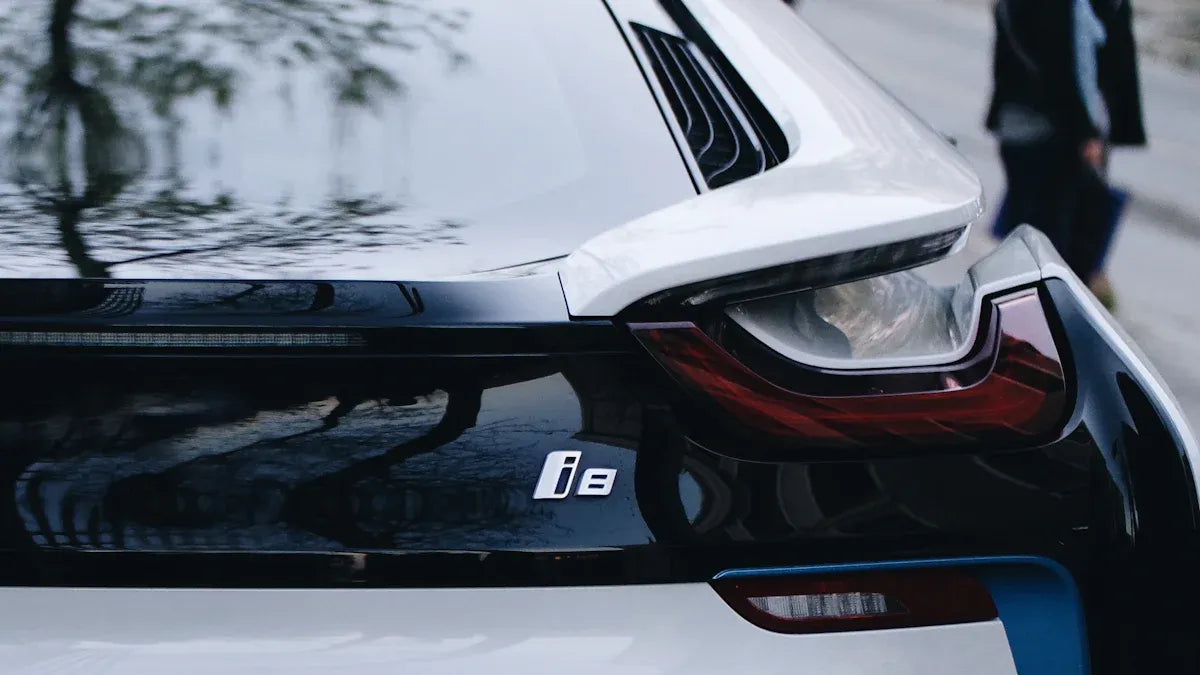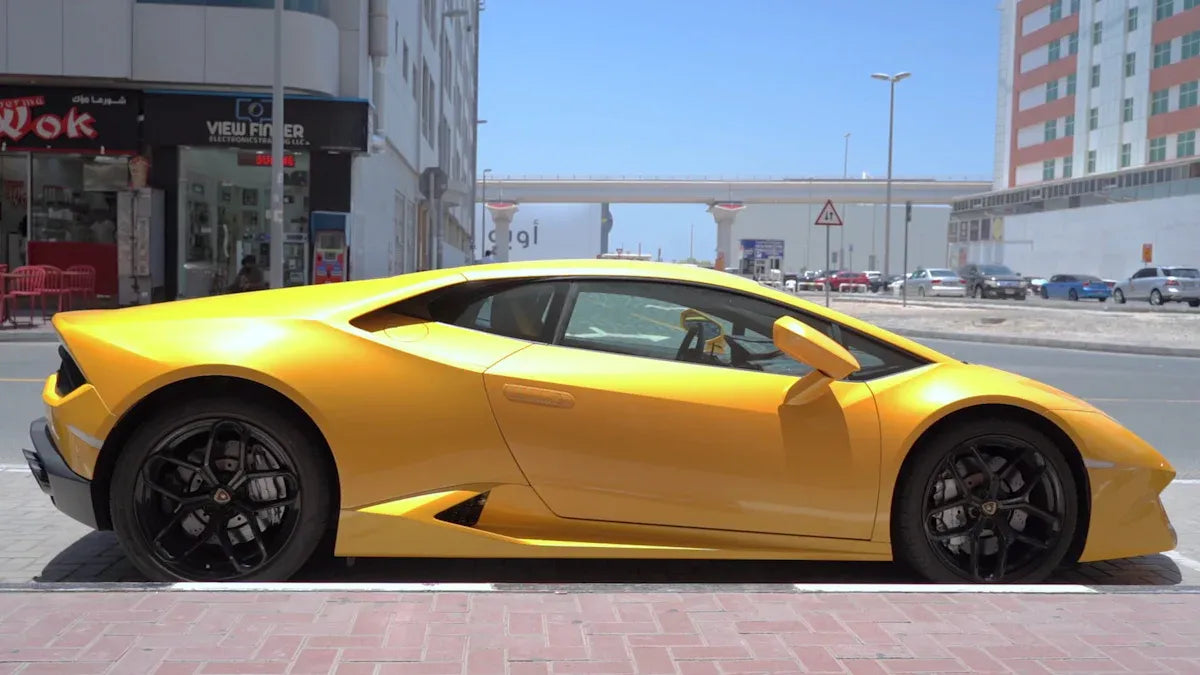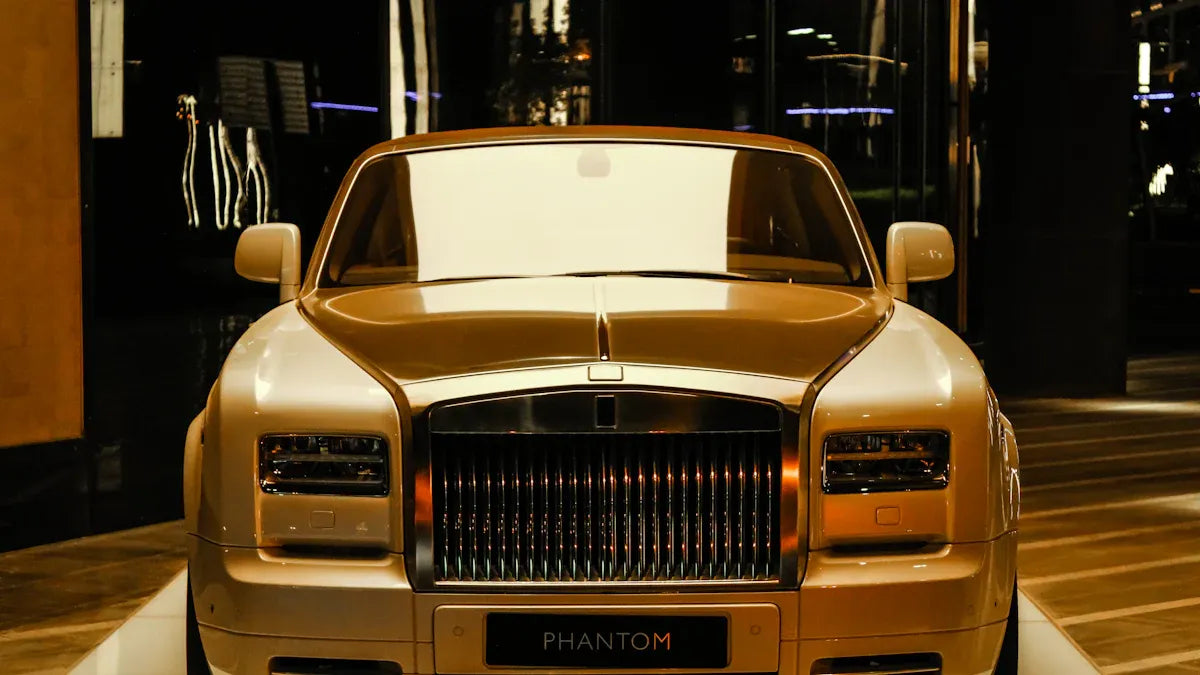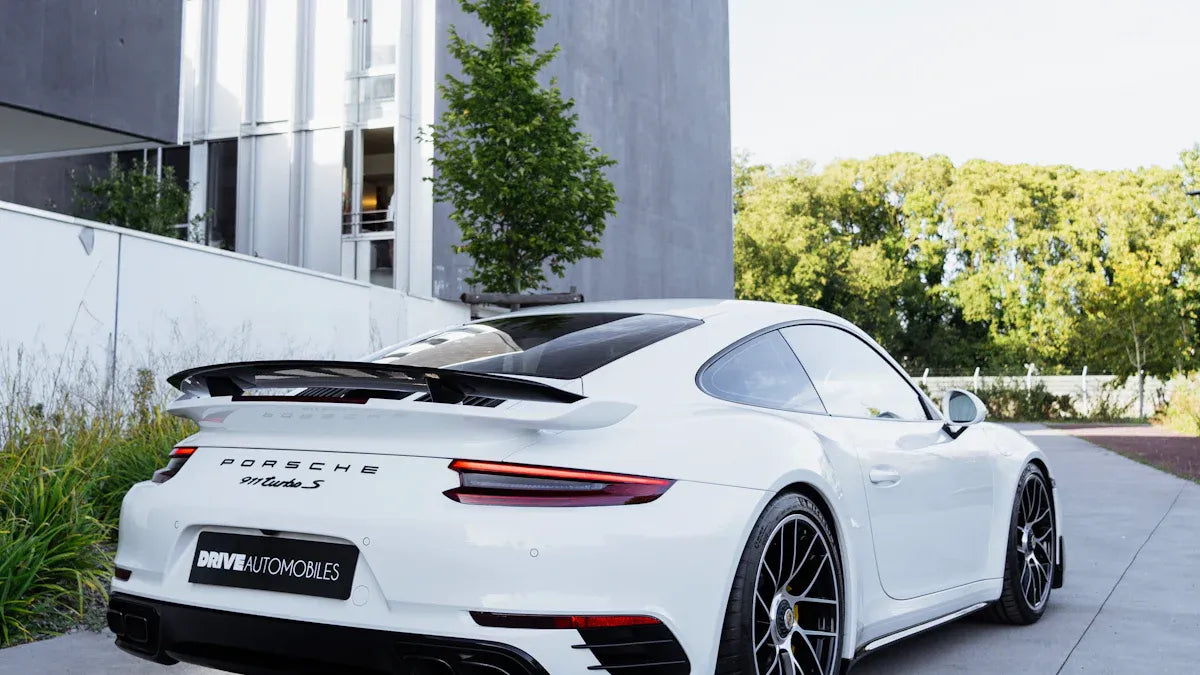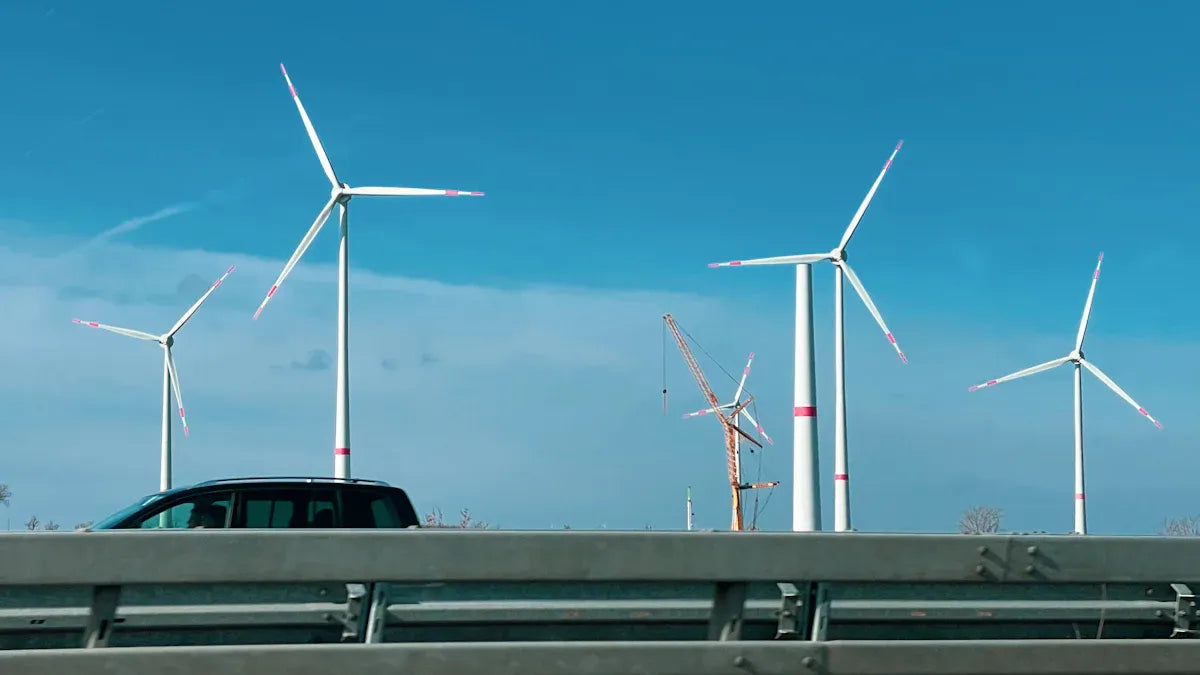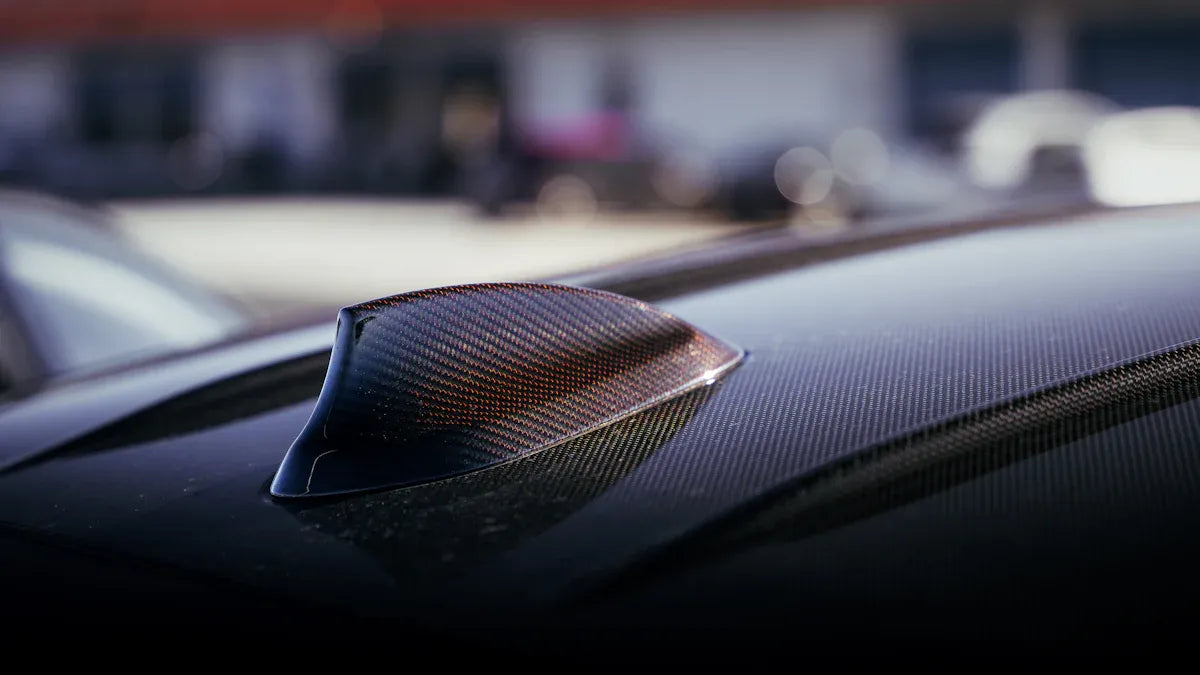CarbonXtreme Post
BMW VDX Prototype Production EV: What Sets Its Performance Features Apart in 2025
The BMW VDX Prototype Production EV, set to redefine electric vehicle standards in 2025, combines cutting-edge technology with exceptional performance. Featuring a quad-motor setup, this prototype delivers up to 1,340 horsepower and remarkable torque, ensuring quick acceleration and precise control. With active aerodynamics, advanced all-wheel-drive, and the "Heart of Joy" central computer, the VDX sets new benchmarks for handling, efficiency, and driving comfort. BMW's commitment to innovation is evident in its advanced regenerative braking system, dynamic control, and sleek design, positioning the VDX as a leader in the future of high-performance electric vehicles.
What Makes the Lamborghini Temerario Plug-in Hybrid Stand Out in 2025
The 2025 Lamborghini Temerario Plug-in Hybrid redefines the supercar experience with its powerful hybrid system, combining a 4.0-liter twin-turbo V8 engine with three electric motors, delivering 920 horsepower and 730 Nm of torque. It features 13 hybrid driving modes, an advanced 8-speed dual-clutch transmission, and a chassis with improved rigidity for enhanced performance and stability. This hybrid technology ensures thrilling acceleration, impressive efficiency, and urban usability, making the Temerario a true evolution in Lamborghini's supercar lineup. With its luxurious interior, advanced tech, and unmatched customization options, the Temerario sets a new benchmark in the hybrid supercar segment.
Rolls-Royce Phantom Evolution and Key Differences Between Models
The Rolls-Royce Phantom has evolved through generations to become a symbol of ultimate luxury and craftsmanship. From its beginnings in 1925, the Phantom set new standards in automotive design with its focus on bespoke customization, unmatched comfort, and innovative technology. Today, the Phantom combines classic engineering with modern features such as hybrid powertrains, digital displays, and the famous "Magic Carpet Ride" suspension. Whether as a collector's item or a personal luxury vehicle, the Phantom remains a highly coveted and valuable investment, with special editions and rare models continuing to appreciate in value.
Choosing Between Porsche 911 Turbo and Turbo S in 2025
Choosing between the Porsche 911 Turbo and Turbo S in 2025 comes down to performance, value, and personal preferences. The Porsche 911 Turbo offers a perfect balance of power and comfort, making it ideal for daily driving with a practical yet thrilling experience. In contrast, the Turbo S delivers superior acceleration, top speed, and handling, making it the best choice for enthusiasts and track use. Both models feature cutting-edge technology, luxury options, and strong resale value. Ultimately, your decision should be based on whether you prioritize daily comfort, advanced performance, or customization flexibility.
How Does Hemp Fiber Tensile Strength Compare to Steel
Recent studies have shown that hemp fiber can exceed steel in tensile strength under specific conditions. Hemp fibers range from 250 to 4200 MPa in tensile strength, compared to steel's range of 400 to 3000 MPa. Hemp is gaining recognition for its lightweight, sustainable, and high-performance qualities, especially in composites for automotive and construction industries. However, steel remains more reliable for large-scale structural applications due to its consistency and durability. The choice between hemp and steel depends on the specific requirements of the application, including strength, weight, cost, and environmental impact.
3 Natural Fiber Composite Advantages Backed by Science
Natural fiber composites offer a sustainable and eco-friendly alternative for various applications. Derived from renewable materials like hemp, flax, and jute, these composites provide significant benefits in terms of strength, durability, and environmental impact. Their biodegradability, low cost, and low carbon footprint make them an ideal choice for industries such as automotive, construction, and engineering. Furthermore, their high strength-to-weight ratio and performance in demanding applications make them reliable for structural and non-structural components. By choosing natural fiber composites, you support sustainability while achieving cost-effective, high-performance solutions.
Best Eco-Friendly Materials for Cars Ranked by Performance and Sustainability
BMW’s use of hemp fiber composites, such as the hemp fiber roof, exemplifies the growing shift toward eco-friendly materials in the automotive industry. These materials offer a sustainable alternative to carbon fiber by reducing greenhouse gas emissions, energy consumption, and waste. The hemp fiber roof combines lightweight strength with biodegradability, supporting BMW’s commitment to carbon neutrality while maintaining high-performance standards. The integration of natural fiber composites reflects the industry's broader focus on sustainability, with eco-friendly materials playing a key role in advancing greener vehicle designs.
BMW Hemp Fiber Roof vs Carbon Fiber Roof: Which Is Greener?
BMW's adoption of natural fiber composites, such as the hemp fiber roof, marks a significant step towards reducing environmental impact while maintaining high-performance standards in automotive design. The hemp fiber roof offers a renewable, low-emission alternative to carbon fiber, showcasing similar mechanical properties with the added benefit of easier recycling. This move aligns with BMW’s commitment to sustainability and carbon neutrality, further solidifying its position as a leader in eco-friendly automotive innovation.
Exploring the Differences Between Sustainable and Conventional Composites
Sustainable composites, made from renewable materials like flax and hemp fibers, are gaining momentum as a viable alternative to traditional synthetic composites such as carbon and glass fibers. These materials offer significant benefits, including reduced environmental impact, biodegradability, and recyclability. They also provide competitive mechanical properties like strength, stiffness, and vibration damping, making them ideal for applications in industries like automotive, construction, and consumer products. Ongoing innovations in manufacturing and recycling technologies are improving efficiency and supporting broader adoption of these eco-friendly materials.


